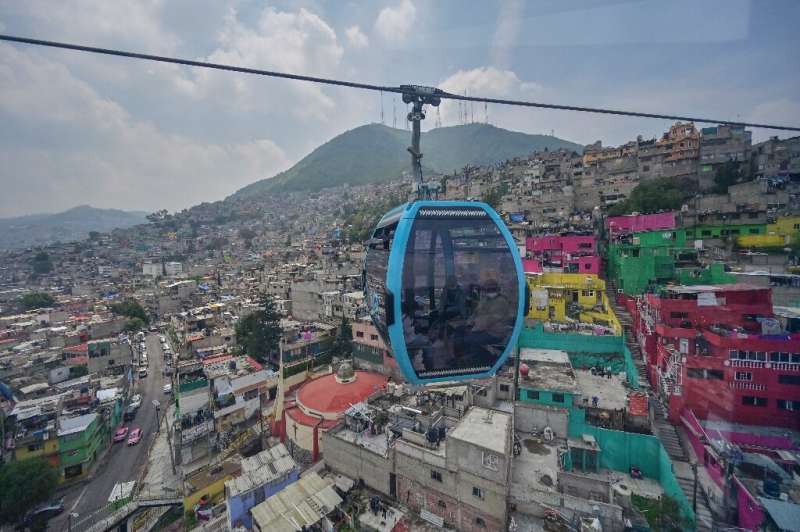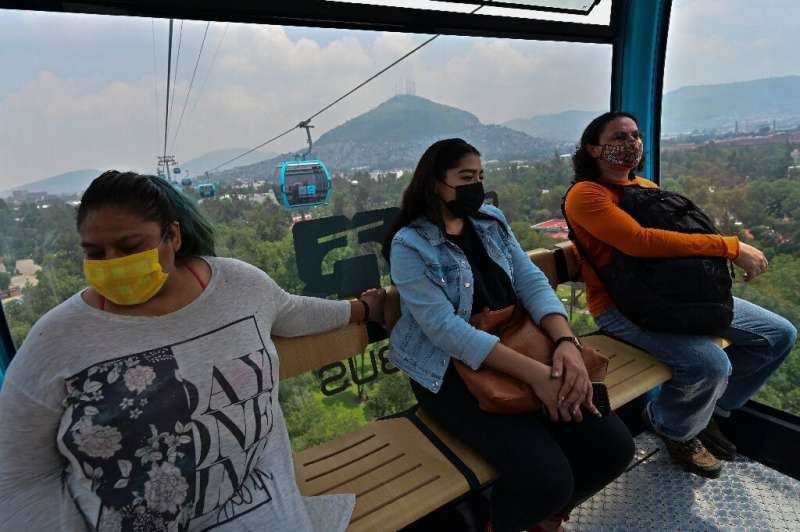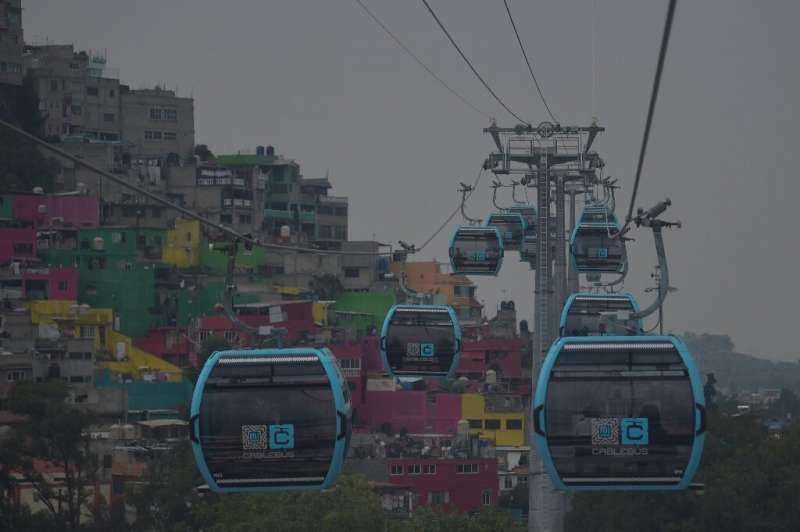Passengers travel over Mexico City on the new Cablebus aerial tramway.
Commuters soared over one of the world's biggest and most traffic-clogged cities as a new cable car system went into operation in the Mexican capital on Monday.
The 9.2-kilometer (5.7 miles) aerial tramway, comprising 377 cars that can each carry 10 passengers, promises to cut travel times for thousands of people in northern Mexico City.
"How much time was wasted. They should have done this much earlier," said 46-year-old electrician Marco Antonio Garcia, delighted that what was a journey of more than an hour now takes 20 minutes.
"Are we in France or Switzerland?" he said, laughing along with the other passengers.
In contrast to the buses and metro where pickpockets and thieves operate, passengers aboard the new Cablebus system enjoyed comfortable seats, legroom, air conditioning and Wi-Fi.
"It reduces my travel time a lot," 21-year-old psychology student Karen Leon said, traveling with family members who gazed down on the city with a mixture of astonishment and amusement.
It was a welcome change from the hellish commute that many endure in the capital and surrounding urban sprawl, home to a total of more than 20 million people.
The line between Cuautepec and Indios Verdes can carry up to 5,000 people an hour between six stations, according to Mayor Claudia Sheinbaum's office, which plans to open a second line in the east of the city.
-
The cable car promises to cut travel times for thousands of people in Mexico City.
-
The cable car can carry up to 5,000 people an hour between six stations, according to the mayor's office.
Another cable car system was inaugurated in 2016 in Ecatepec just north of the capital, an area plagued by crime and poor public transportation.
Similar systems also exist in a number of other Latin American cities, notably La Paz and adjoining El Alto in Bolivia which have a 32-kilometer aerial tramway.
© 2021 AFP


























